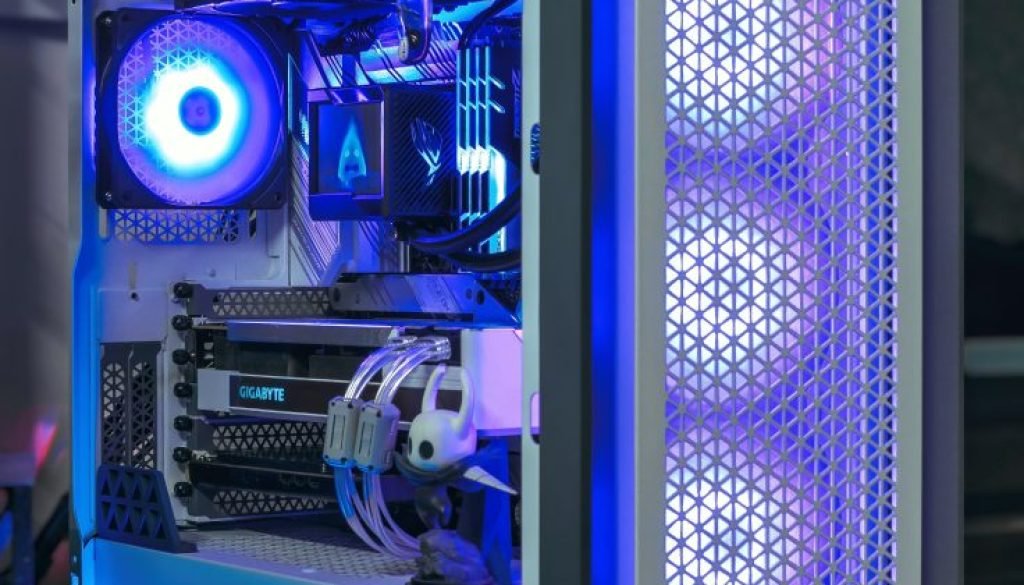Computer Operating Systems: Your Ultimate Guide to Success!
Introduction to Computer Operating Systems:
In the contemporary digital era, computers have become intrinsic to our daily existence. From the professional laptops facilitating our work to the ever-connected smartphones, computers are our companions. At the core of these digital marvels lies the Computer Operating System (OS), an orchestrator that transforms mere hardware into functional devices. This all-encompassing guide delves into the realm of Computer Operating Systems, not just unveiling their multifaceted roles and significance but also embarking on a fascinating journey through their evolution. Prepare for a voyage to demystify the intricate world of computing.
Computer Operating System: The Nexus of Your Device In essence, a Computer Operating System (OS) operates as a maestro in an orchestra, harmonizing the myriad components and applications within a computer to produce a symphonic masterpiece. To truly appreciate its significance, one must delve into its rudimentary functions:
Grasping the Fundamentals
- Resource Management: The OS proficiently allocates resources like CPU cycles, memory, and storage capacity to diverse applications, ensuring equitable and optimal utilization. Envision your computer as a culinary establishment, with the OS serving as the accomplished chef, skillfully distributing ingredients to various dishes to minimize wastage and optimize outcomes.
- User Interface Mastery: It furnishes a user-centric interface, enabling users to interact with the computer through graphical elements, icons, and intuitive menus. Imagine the OS as the affable concierge in a luxurious hotel, facilitating a seamless and effortless experience.
- Proficiency in File Administration: The OS adeptly oversees file management, empowering users to create, access, and organize data effortlessly. Visualize the OS as the meticulous librarian in an expansive library, meticulously cataloguing and arranging books for swift retrieval.
- Bridging Hardware and Software: Serving as an intermediary between hardware components and software applications, the OS facilitates seamless communication. Picture the OS as a skillful interpreter at the United Nations, ensuring effective collaboration and understanding among diverse parties.
- Guardianship and Access Oversight: The OS enforces stringent security measures, safeguarding the system from unauthorized intrusion and malware. Think of the OS as the vigilant sentry at a high-profile event, meticulously verifying credentials and granting access exclusively to authorized individuals.
A Condensed Chronicle of Computer Operating Systems
To comprehend the intricate evolution of Computer Operating Systems, let us embark on a journey through time:
- Genesis (1950s) – The Birth: The concept of computer operating systems emerged in the 1950s when computers were colossal, room-filling behemoths. Early OSs were rudimentary, primarily managing input and output operations. These systems laid the foundation, akin to the initial drafts of a literary masterpiece.
- Era of Batch Processing (1960s): As computers gained power, batch processing systems emerged. These systems allowed users to submit jobs for orderly processing. Picture it as placing orders in a restaurant, with each request prepared in sequence.
- Time-Sharing Systems Era (1970s): The 1970s ushered in time-sharing systems, enabling multiple users to interact concurrently with a computer. Unix, a revolutionary OS, was born during this epoch. This resembled a shared workspace where collaboration among multiple individuals was real-time.
- Pinnacle of Personal Computing (1980s): With the advent of personal computers, operating systems like MS-DOS and Apple’s System software became household names. This era paralleled the rise of cozy cafes where individuals could savor unique experiences.
- Windows and the GUI Revolution (1990s): The 1990s witnessed the ascent of graphical user interfaces (GUIs) with Windows 95 setting new standards for user-friendly computing. This transformation resembled the shift from handwritten letters to vibrant, interactive magazines.
- The Internet Era (2000s): The 2000s integrated the internet into operating systems, making connectivity a cornerstone of computing. It was akin to a city evolving into a global metropolis, interconnected with highways linking it to the world.
- The Mobile Transformation (2010s): With the proliferation of smartphones, mobile operating systems like Android and iOS took center stage. This marked the advent of pocket-sized, all-in-one gadgets capable of multifaceted tasks.
- Cloud Integration and Security (2020s): Contemporary operating systems focus on seamless cloud integration and robust security features to meet the demands of an interconnected world. Imagine transforming a conventional brick-and-mortar store into a cutting-edge global e-commerce platform with state-of-the-art security.
Popular OS Varieties
A multitude of operating systems cater to diverse needs. Here are some of the most distinguished ones:
- Windows: Renowned for user-friendliness, Windows dominates the personal computer realm. It’s akin to the trusted family car – reliable, user-friendly, and versatile.
- macOS: Exclusively tailored for Apple devices, macOS boasts a sleek interface and unparalleled performance. Visualize it as a luxurious automobile renowned for its elegance and superior capabilities.
- Linux: An open-source OS, Linux finds favor among developers and tech enthusiasts due to its flexibility. It’s analogous to a customizable sports car, allowing for intricate fine-tuning to attain peak performance.
Selecting the Apt Operating System Choosing the right Computer Operating System is pivotal, as it significantly influences your computing experience. Consider these factors when making your selection:
- Determining Purpose: Define the primary function of your computer – work, gaming, or general use. Different operating systems cater to distinct requirements, much like selecting the appropriate tool for a specific task.
- Assessing Hardware Compatibility: Ensure compatibility between your chosen OS and your computer’s hardware components. Some OSs have specific hardware prerequisites, comparable to verifying if your car’s engine can accommodate desired enhancements.
- Evaluating User Preferences: Consider your familiarity with the OS and your comfort level with its interface. An intuitive interface can enhance productivity, similar to selecting a neighborhood for residence where comfort and ease prevail.
- Scrutinizing Software Compatibility: Verify if the software you require aligns with the chosen OS. Certain applications are exclusive to particular platforms, analogous to ensuring your favorite restaurant exists in your chosen city.
- Weighing Security Requirements: If security is paramount, opt for an OS renowned for its robust security features. It’s akin to choosing a gated community for added safety and peace of mind.
Read about Computer Memory Devices: Navigating the Realm of Computer Memory Devices: From RAM to SSD
Frequently Asked Questions
Q: What’s the Most Recent Windows Iteration?
A: As of the present, Windows 11 holds the distinction of being the latest version. It’s analogous to the newest model of your preferred automobile, featuring enhanced features and performance.
Q: Can macOS be Installed on Non-Apple Hardware?
A: In theory, it’s possible, but it may infringe upon Apple’s licensing agreements. It’s akin to attempting to fit a high-performance car engine into a different chassis – it might function, but it’s not always advisable.
Q: Is Linux Suitable for Novices?
A: Linux may pose challenges for beginners but offers a learning curve well worth the effort. It’s reminiscent of learning to operate a manual transmission car – initially challenging but leading to new possibilities.
Q: How Frequently Should I Update My OS?
A: Regular updates are imperative for security and optimal performance. Check for updates at least monthly, much like scheduling regular check-ups for your car to ensure smooth operation.
Q: Optimal OS for Gaming?
A: Windows stands as the preferred choice for gaming due to its extensive game library and robust driver support. It’s akin to selecting a gaming console renowned for its vast game catalog.
Q: Are Free Alternatives to Prominent OSs Available?
A: Yes, Linux distributions like Ubuntu provide free alternatives to proprietary OSs. Think of it as discovering a complimentary public transportation system as an alternative to owning a vehicle.
Conclusion
In summary, Computer Operating Systems serve as the unsung heroes of our digital existence. They oversee resources, furnish user-friendly interfaces, and ensure security, rendering our computing experiences possible. The selection of the appropriate OS carries profound implications for productivity and satisfaction. By comprehending your needs and the available options, you can make an informed decision. Embrace the realm of Computer Operating Systems and unlock the full potential of your device.
Read about BIOS: Unveiling the Enigmas of BIOS: The Silent Maestro Behind Your Computer’s Operation
Additional Links
- Wikipedia – Operating Systems: https://en.wikipedia.org/wiki/Operating_system – Provides an extensive overview of operating systems, their history, and various types.
- Microsoft Windows Official Website: https://www.microsoft.com/en-us/windows – For information about the latest Windows operating system versions and updates.
- Apple macOS Official Website: https://www.apple.com/macos/ – Offers details on Apple’s macOS operating system for Mac computers.
- Linux.org: https://www.linux.org/ – A comprehensive resource for everything related to Linux operating systems, including distributions and tutorials.
- Operating System Concepts Book: https://www.os-book.com/ – A link to a relevant book or textbook that can provide in-depth knowledge on operating systems.
- TechRadar – Best Operating Systems: https://www.techradar.com/news/software/operating-systems – A source for reviews and news about the latest operating systems and updates.
- GitHub: https://github.com/ – A platform to explore open-source operating systems and related projects.
- The Linux Foundation: https://www.linuxfoundation.org/ – An organization that supports the development of the Linux kernel and promotes open-source technologies.
- FreeBSD Official Website: https://www.freebsd.org/ – Information about the FreeBSD operating system, known for its stability and performance.
- Operating System History: https://www.computerhistory.org/timeline/computers/ – A timeline of the history of computer operating systems by the Computer History Museum.



